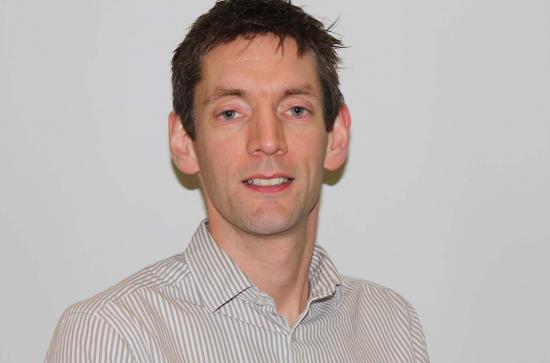 A SCIENTIST from County Donegal is among a group of researchers who have come up with a compound which could help treat millions of diabetics around the world.
A SCIENTIST from County Donegal is among a group of researchers who have come up with a compound which could help treat millions of diabetics around the world.
Dr John Stephens and colleagues at Maynooth University have discovered a series of new compounds whose anti-diabetic effects mimic those of exercise.
The new research was published yesterday in the internationally renowned Journal of Molecular Endocrinology.
The findings mark the culmination of five years of work by a team led by Dr John Stephens from the Maynooth University Department of Chemistry.
The breakthrough comes at a time when diabetes is reaching epidemic levels. An estimated 200,000 people in Ireland suffer from diabetes in Ireland and the worldwide figure for type 2 diabetes is more than 370 million people.
Diabetes is a chronic condition associated with abnormally high blood sugar (glucose) levels. Glucose is a critically important molecule, serving as an energy source, but at elevated levels it can result in serious negative consequences. The cost of global health spending to treat diabetes is estimated to be US$600bn in 2015, and will approach US$800bn by 2040. Complications resulting from type 2 diabetes include chronic microvascular complications, such as blindness and kidney damage, and macrovascular complications leading to limb amputation and cardiovascular disease.
The compound discovered by the team at Maynooth University mimics the effects of exercise on the body. During exercise, cells must convert more glucose into usable energy (adenosine triphosphate or “ATP”) than they do while in a rest state. The compound makes it harder for cells to convert glucose in to ATP.
This means the cells take up more glucose than they otherwise would, thereby minimising the elevated levels of glucose that exist in the blood of sufferers of type 2 diabetes.
The series of compounds discovered at Maynooth University have shown the ability to improve glucose handling and to reduce weight gain in laboratory studies at significantly lower doses than those required by existing therapies. As such, they may prevent some of the intestinal problems associated with the existing higher dose therapies. The compounds also showed a positive effect on weight, which in itself may help with the interlinked problems of weight gain and type 2 diabetes.
Commenting on this discovery, Ballyshannon man Dr Stephens said: “The benefits of exercise for those suffering with type two diabetes have been well documented. The discovery of this series of new compounds that mimic these benefits is a significant development in the treatment of diabetes.
“We are now looking forward to our next phase of research, which will see us undertake further lab studies and early clinical trials. We are still a long way from seeing this reflected on the shelves in pharmacies; however, these compounds have the potential to become an important tool for the treatment of type 2 diabetes for future generations.”
The project involved significant collaboration and cutting-edge research, with scientists working at the interface of biology and chemistry. Professor John Findlay and Dr Darren Martin from the Maynooth University Department of Biology, Dr Gemma Kinsella of Dublin Institute of Technology and collaborators at Trinity College Dublin and the University of Leeds worked alongside Dr Stephens on this research.
Maynooth University President, Professor Philip Nolan, said: “This is a fine example of best-in-class collaboration across scientific disciplines. Maynooth University prides itself on our internationally renowned researchers who time and time again confront and tackle some of the most pressing challenges we face today.
“Effective treatment for diabetes is one of the areas of medical research with the potential to improve the lives of extremely high numbers of people, as the numbers of those suffering worldwide continues to grow. I commend the research team and look forward to seeing the results of the next stages of research on such a vitally important topic.”
This is the second of two major breakthroughs from the Co Donegal man, who recently discovered a compound whose anti-MRSA qualities paves the way for the development of a new class of antibiotic.
Tags:







